Remembering Walter Tull 100 years on: Northampton's legendary Cobblers player and First World War hero
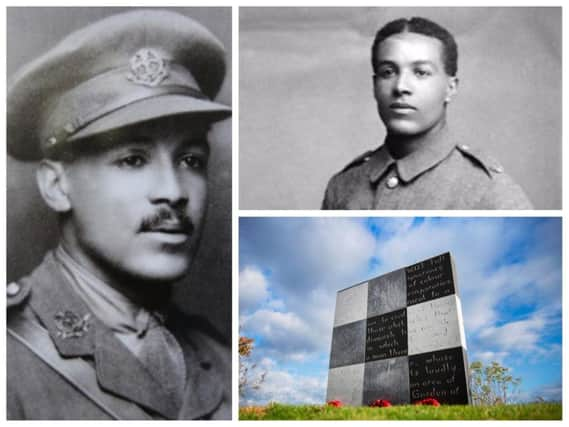

Born in Kent in 1888 and spotted as a talented footballer aged 19, he was once the inside forward for Tottenham Hotspurs. Many newspapers and sports reports would pick Walter out for his smarts on the field, and called him "Hotspurs most brainy forward".
But in an away match to Bristol's Ashton Gate stadium in October 1909, Tull was heckled and racially abused by Bristol City fans. He remained professional and focused despite the merciless abuse throughout the game. But for unknown reasons, his appearances were cut shortly after. From there, he was bought by Northampton Town.
Advertisement
Hide AdAdvertisement
Hide AdIt was a sad way for the Cobblers to come by the man who would play 111 games for the club, and who would become the first Northampton Town player to enlist in the army when his football career was interrupted by the First World War. Today he is recognised in the town ass one of the club's heroes and a hugely-important piece of the Northampton's heritage.
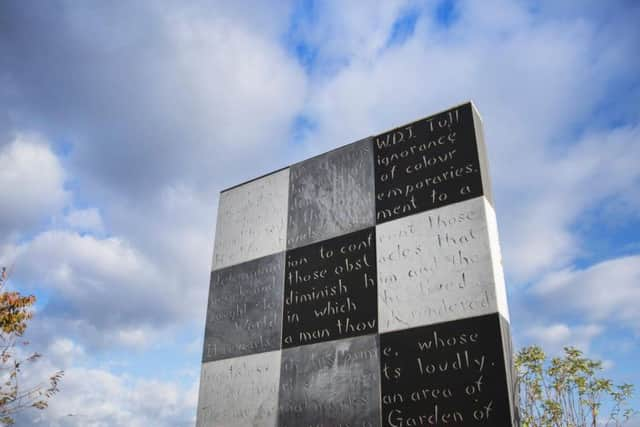

During his service, he fought in six battles including the Somme and rose to the rank of sergeant. His appointment to second-lieutenant made him the first black infantry soldier to become an officer in the British Army. He also once led his company of 26 men on a raiding party into enemy territory in Italy.
He was even recommended for a Military Cross - but this honour was never awarded to him due to his contradictory status as an officer in an Army that did not officially permit black soldiers to serve as officers.
The Cobblers legend was killed in action in France on March 25, 1918, aged just 29. His body was never recovered.
Advertisement
Hide AdAdvertisement
Hide AdBut last weekend, on March 25, Walter's life was celebrated across the town as hundreds of people turned out to mark the 100-year anniversary of his death.
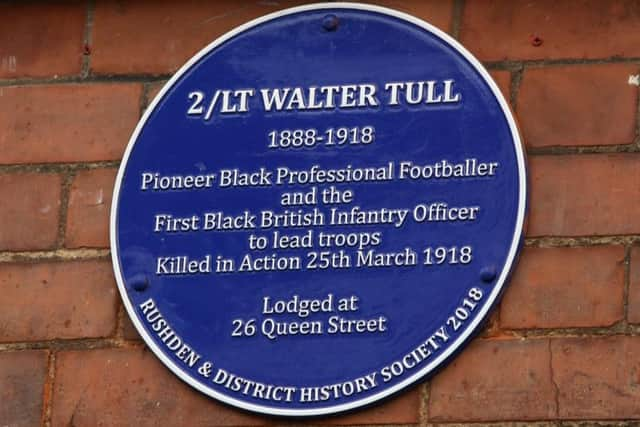

A commemorative procession was led through the town centre and a service was held at All Saints Church. A blue plaque was unveiled at his former home in Rushden. And after a ceremony in front of his memorial at Sixfields, Northampton Town took on Charlton Athletic in a friendly match.
Chairman of Northampton Town Football Club, Kelvin Thomas, said: “As a club, we are very proud of our role in the community of Northampton, we are very proud of our history and we are very proud that Walter Tull was a Cobbler."
Walter is now remembered as a huge figure in Northampton's heritage. A cast-bronze statue of him now stands in the courtyard at the Guild Hall and he is the centre of campaign by the Northamptonshire Black History Association to include his story in the national curriculum.
Advertisement
Hide AdAdvertisement
Hide AdAnd earlier this week, 127 MPs from six different parties signed a letter to the Prime Minister asking that Walter be posthumously awarded the Military Cross he never received while serving.
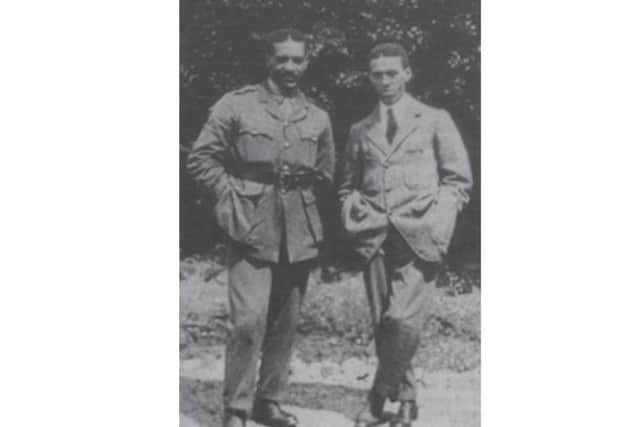

Leader of the campaign Tottenham MP David Lammy said: ""Walter Tull is a true British hero and he embodies everything that makes me so proud to be British.
"I think that everybody in our country should know Walter’s story and the 100th anniversary of his death is the perfect opportunity to right this wrong, recognise his achievements and celebrate his life.
"His strength and courage in overcoming such bitter prejudice and racism to become a pioneer and a trailblazer in sport and in our armed services serves as an inspiration to us all."
Advertisement
Hide AdAdvertisement
Hide AdWalter's epitaph at the Sixfields Stadium, written by his biographer Phil Vasili, reads:
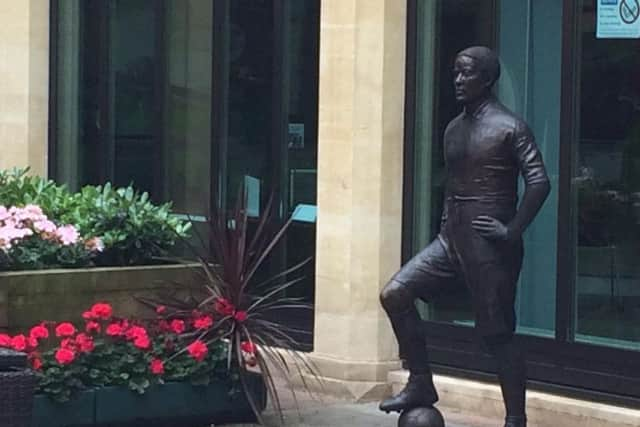

"Through his actions, Tull ridiculed the barriers of ignorance that tried to deny people of colour equality with their contemporaries. His life stands testament to a determination to confront those people and those obstacles that sought to diminish him and the world in which he lived. It reveals a man, though rendered breathless in his prime, whose strong heart still beats loudly."